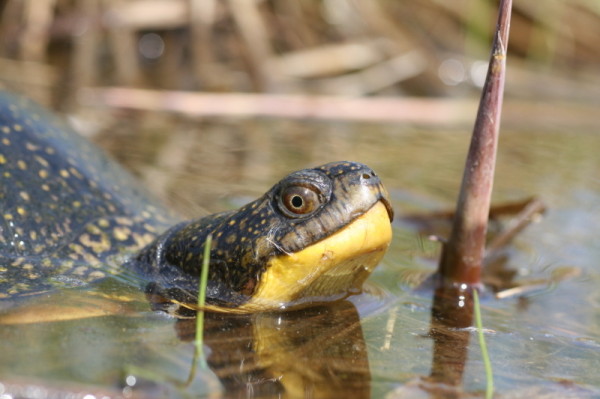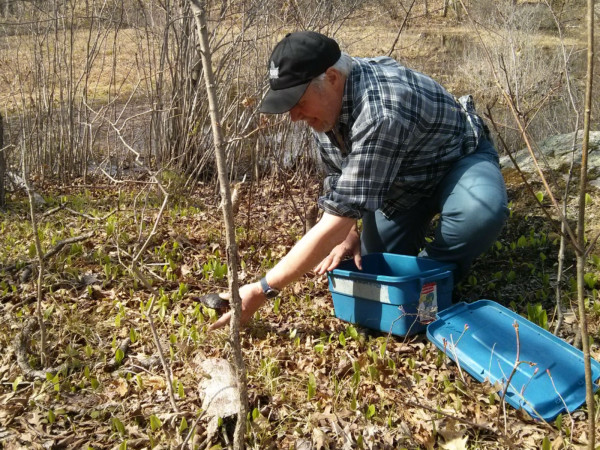Turtle Tuesdays: Why Turtles Need Healthy Waters
For the month of July, WWF will be celebrating turtles every Tuesday! July is a great time of year to have a conversation about turtles, when people and turtles alike are out basking in the sunshine and enjoying fresh water.
We want to talk about turtles, as turtles around the world are in trouble. They are considered to be one of the most endangered groups of animals on the planet. In Ontario, for example, seven of our eight turtle species are now officially considered species at risk. And they’re not alone – turtles are a sad example of what is happening to freshwater species in general. WWF’s 2012 Living Planet Index showed that over the past 40 years, freshwater species have declined by as much as 37% globally – a greater decline than what has been observed for terrestrial or marine species.

So, why is this happening? The reality is that like humans and all other freshwater species, turtles depend on healthy waters to live (to learn more about water health and how we measure it, check out WWF’s Freshwater Health Assessments). Many changes to aquatic ecosystems, like the loss of wetlands, have a big impact on water health and the species living within them.
Habitat loss is the number one cause of species decline around the world, and increasingly, the habitats that turtles use such as wetlands, bogs and marshes have been lost or paved over and converted to other land uses. In fact, wetlands are being destroyed faster than any other ecosystem in the world. For example, the endangered spotted turtle (Clemmys guttata) lives in bogs or fens, which are very sensitive to changes in water levels. When these areas are drained or diverted for other uses, healthy waters disappear and spotted turtles lose their habitat. Spotted turtles now live within heavily fragmented populations throughout their range, making it hard, and often impossible, for them to safely travel, feed, and mate.

Waters contaminated with garbage or other pollutants are also a threat to turtles. We’ve all seen the images of turtles tangled in plastic packaging, or heard about them eating litter that looks similar to their food.
Every Tuesday in July we’ll highlight the efforts of groups that are working across the country to save turtles through habitat restoration or other conservation initiatives. If you want to do your part to help turtles, check out the suggestions below!
How you can help turtles:
- Join a Great Canadian Shoreline Cleanup in your area, or organize your own cleanup, to help keep freshwater habitats clean
- Join a Loblaw Water Fund initiative in your area to help to restore freshwater ecosystems
- Don’t litter!
- Help a turtle cross a road! Move turtles in the direction they were going and not more than 100 metres from where they were found
- Don’t take turtles from the wild home as pets, or release unwanted pet turtles into the wild
- Use environmentally friendly cleaning products at home to keep unwanted chemicals out of our waterways
- If you find an injured turtle, take it to a registered wildlife rehabilitator or turtle specialist, such as the Kawartha Turtle Trauma Centre in Ontario
